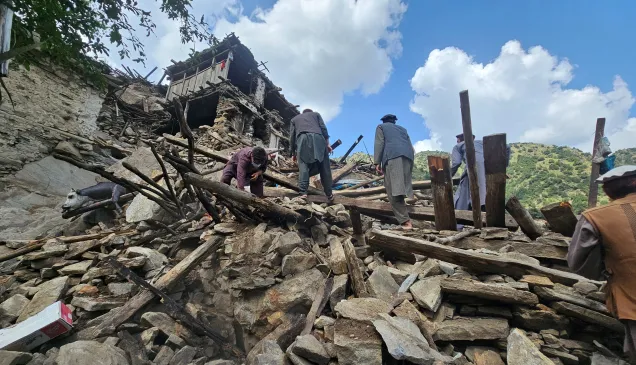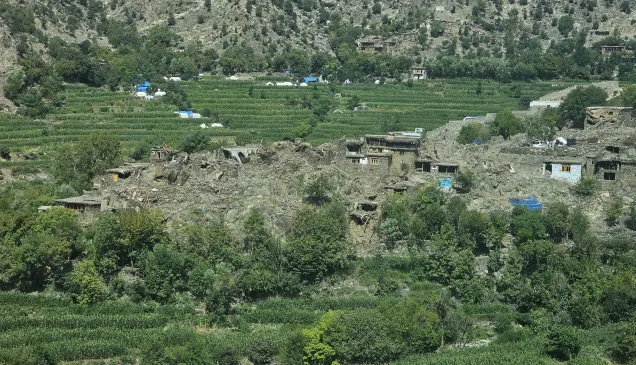Afghanistan: Families who lost everything in conflict, struggle again due to COVID-19
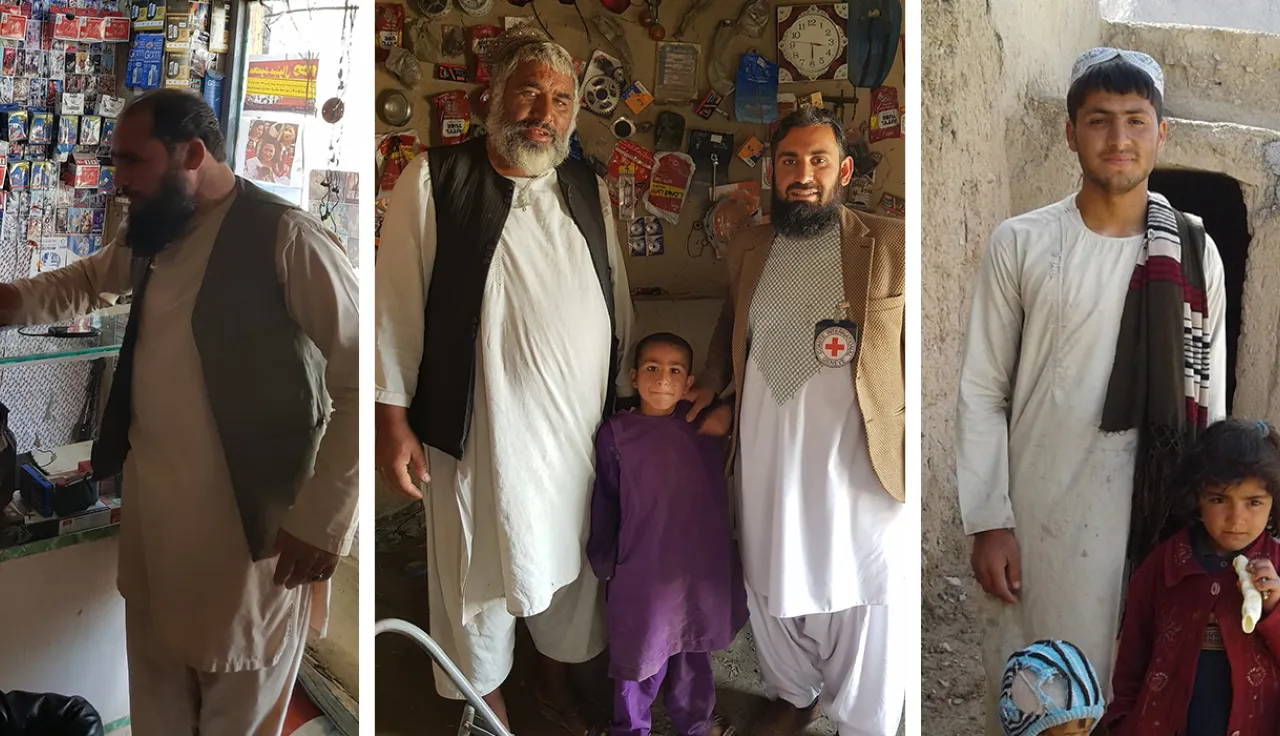
Amir Khan, Ahmadullah and Mohammad Halim are familiar with hard times. Living through the death of their loved ones, loss of all their belongings, financial crunch and displacement from their homes, they have learnt to pull through the darkest nights.
Under the livelihood support programme of the International Committee of the Red Cross (ICRC), they – like other conflict-affected families – received 53,000 Afghani each as cash grant to set up small businesses and generate income.
Life had just begun to take a smoother course when the COVID-19 pandemic struck. Today, like many others, Khan, Ahmadullah and Mohammad are back to facing uncertain days triggered by COVID-19. But their grit and determination to tide over these difficult months is keeping them and their families hopeful about a better tomorrow.
Khan shares that his eldest son was killed, his home burnt down, and their livestock was destroyed on a single day when conflict erupted in Abo Qala village of Ghazni province. It was as if his own life had ended that day.
As he had 16 family members to care for, including his son's children, they had to flee from their village to sub-district 7 in Kandahar city. Trying to cope with life in a new place, Khan began looking for daily-wage labour to feed the family. Some days he would manage earning AFN 200-250 (just over 3 US dollars) but on other days, he could not find a job.
"I used to think about our lives before the conflict. I was a content farmer who was able to provide for the family. But in the city, I was not even able to buy food for my family on many days. It was very stressful," he said.
...his eldest son was killed, his home burnt down, and their livestock was destroyed on a single day...
When the ICRC offered to help him, Khan experienced a breakthrough. Along with the cash grant, he borrowed AFN 20,000 from his relatives and opened a small mobile phone accessories shop. From being unsure of whether he would manage to make any money for the day, Khan was able to start earning AFN 300-400 daily.
"We could buy what we needed at home and also pay our rent of AFN 2,000 a month," he shared. Just as life was beginning to stabilize, they were struck by another blow due to the COVID-19 pandemic.
"Business has been affected and I'm able to make only about half of what I used to. But we are managing somehow. The government has put us on a list of people who need help and we are given ten bread pieces a day," he said.
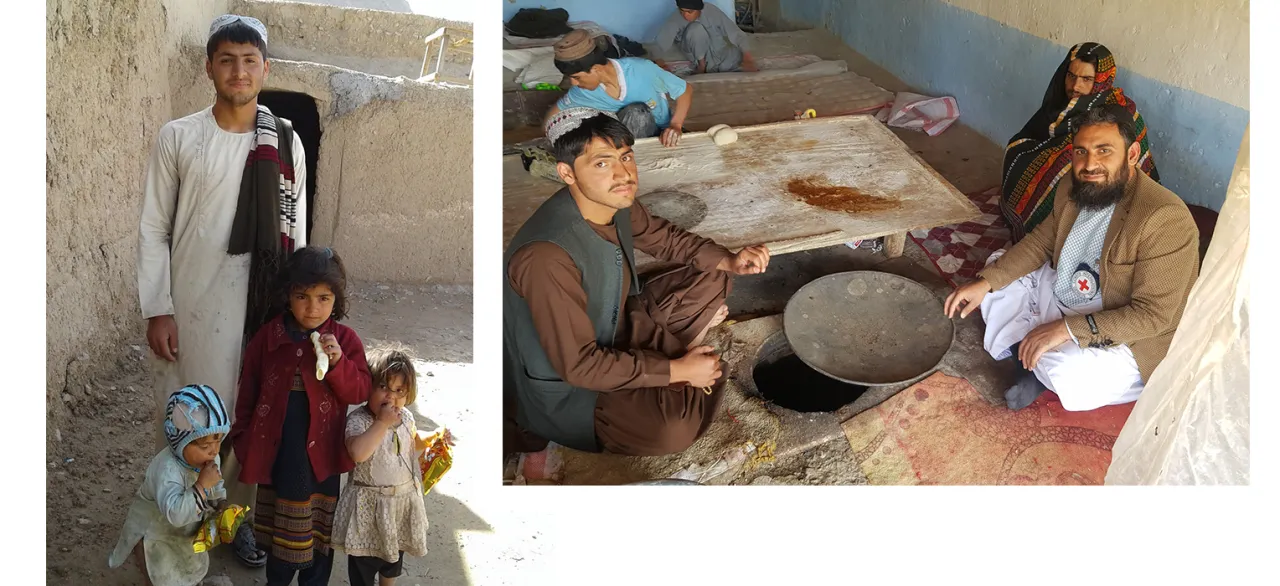
Ahmadullah, who is from Sperwan village of Panjwayi district of Kandahar province, has a similar story to share. "My father and cousin were killed when intense fighting broke out in our village. I was only a young boy, but I became the family's breadwinner and started working in a local bakery," he said. Ahmadullah used to be given five pieces of bread per day and AFN 2,000 a month.
"Having learnt how to bake bread, I wanted to set up my own shop but did not have the resources for it. That's when the ICRC stepped in to help me. With the grant of AFN 53,000 I received from ICRC, I borrowed another AFN 47,000 from relatives and started my own bakery," he said. "This has helped me a lot as I wake up knowing I have a job and am making an income from my own business providing food for my family."
Till a few months ago, he was able to make about AFN 7,000 a month and even hired three young men to work for him. Looking forward to the future, he had planned to pay off his loan first and then start saving up. But those plans have been derailed, at least for now.
"We are able to sell only about AFN 100 worth of bread these days. Because it's a bakery, we are not included on the government's list for food like some of the other families in the area. But I am at peace that I have not had to fire any of my three employees and hence they can also provide for their families," he said.
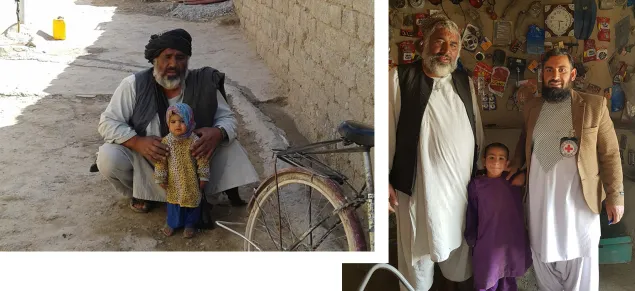
Mohammad Halim before and after ICRC intervention
There's also been a sharp dip in business for Halim who had used the ICRC's cash assistance to expand his bicycle and motorbikes repair shop and started selling spare parts too.
"We moved to Kandahar city after my father was killed in a landmine accident. I used to farm in the village but I could not do that here in Kandahar. So, I opened a small repair shop that got me an average of AFN 200 a day, which was barely enough to meet the needs of my family of 18 members," said Halim.
After expanding the business thanks to the grant he received from the ICRC as well as some money he borrowed from family members, Halim's daily income had increased to about AFN 350 a day and two of his sons had also started working with him.
"Things had begun to look good and I was thinking about expanding further by taking a loan and making sure that my younger children get the education I did not get," he said. "But all that has to wait. Now, there are barely any customers at the shop. We earn about AFN 100 a day and get ten pieces of bread from the government. That's what we have in hand to survive. But I am still hopeful that business will get back on track once this virus is controlled."
"I opened a repair shop... barely enough to meet the needs of my family of 18 members."
— Mohammad Halim
The lockdown was recently lifted, and the three men are looking forward to the day when business picks up again and life gets easier after this period of hardship.
The ICRC's support to affected communities in Afghanistan has helped many people in managing their livelihoods, amid the difficult circumstances of the country.
While COVID-19 crisis has added uncertainty to their lives, they hope things settle down so that they can restart their businesses and support their families over the coming years.


